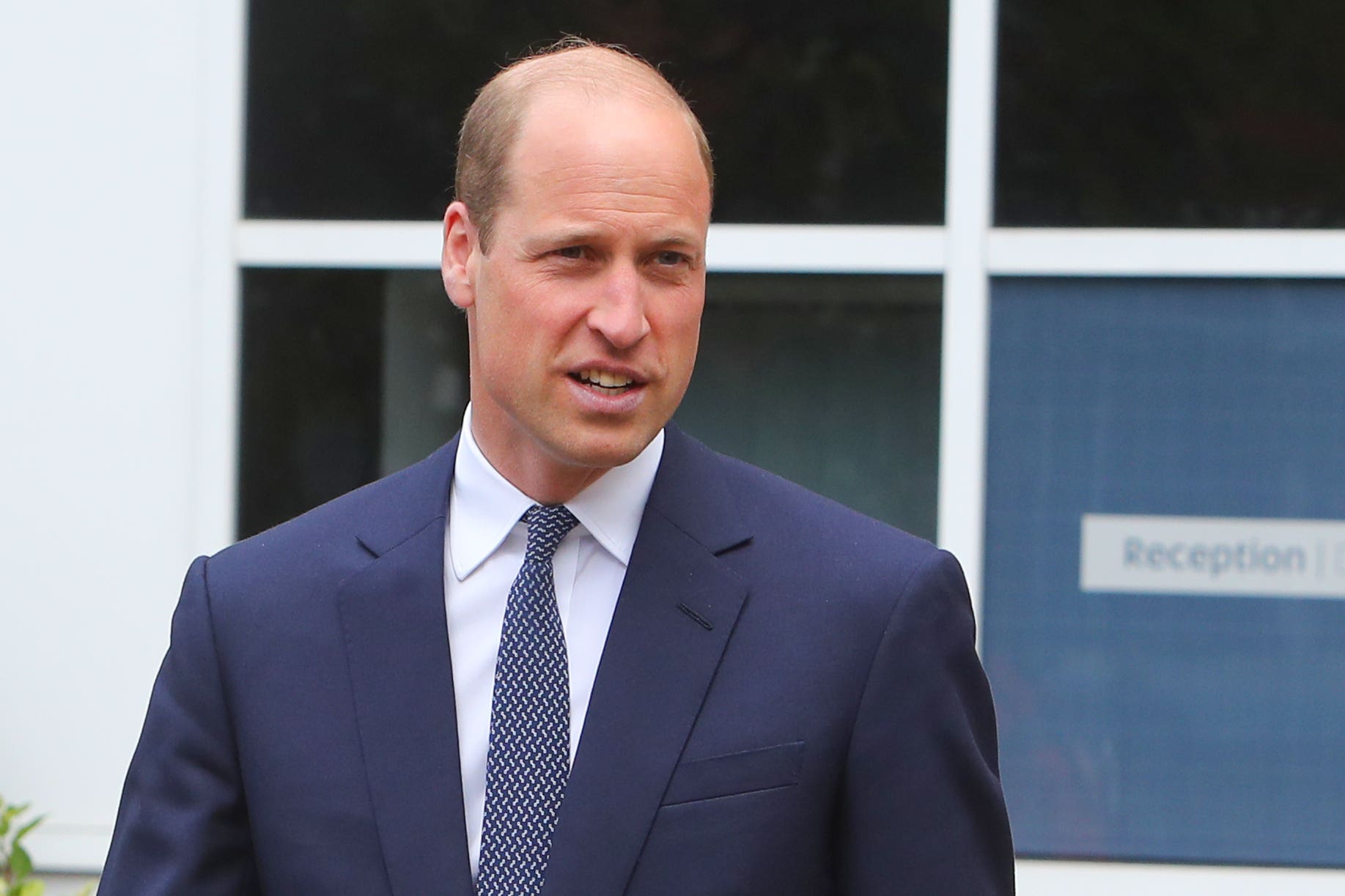William jokes about his ‘Harry Potter’ scar after checking out seaweed golf tee
The Prince of Wales was on a fact-finding visit to learn more about businesses and organisations utilising the benefits of seaweed.

Your support helps us to tell the story
From reproductive rights to climate change to Big Tech, The Independent is on the ground when the story is developing. Whether it's investigating the financials of Elon Musk's pro-Trump PAC or producing our latest documentary, 'The A Word', which shines a light on the American women fighting for reproductive rights, we know how important it is to parse out the facts from the messaging.
At such a critical moment in US history, we need reporters on the ground. Your donation allows us to keep sending journalists to speak to both sides of the story.
The Independent is trusted by Americans across the entire political spectrum. And unlike many other quality news outlets, we choose not to lock Americans out of our reporting and analysis with paywalls. We believe quality journalism should be available to everyone, paid for by those who can afford it.
Your support makes all the difference.The Prince of Wales joked about his famous “Harry Potter” scar when he came across a golf tee – made from seaweed.
William mentioned the golfing accident which left him with a head wound during a fact-finding visit to Wales to learn more about businesses and organisations utilising the benefits of seaweed.
Entrepreneurs gathered at Cardiff Metropolitan University to discuss investment in the sector and display products based on what Derek Walker, Future Generations Commissioner for Wales, dubbed the super-power of seaweed.
The prince chatted to Pierre Paslier, co-founder and co-chief executive officer of Notpla, which supplies seaweed packaging to major sporting and music venues across the country.
The future king picked up a seaweed-produced golf tee, made to biodegrade and fertilise greens and, when asked if he played golf, Mr Paslier said he replied “No – the last time I played golf…” and pointed to his head.
It was during his five years as a pupil at Ludgrove School in Berkshire that William, then eight years old, suffered a golfing accident that left him with his “Harry Potter” scar.
Notpla is a former category winner in William’s Earthshot environmental prize and the prince has taken a keen interest in the business.
The firm’s seaweed-based products are supplied to Levy, a leading sports and entertainment caterer, and used in more than 50 venues from the Oval to Wimbledon’s All England Lawn Tennis Club and London’s O2 Arena.
Among the organisations invited to the event were Car-y-Mor, a community-owned seaweed farm in Pembrokeshire, High Tide, a Swansea company that produces seaweed snack bars, and St Asaph-based PlantSea, which makes packaging from seaweed.
Owen Haines, from Car-y-Mor, which William visited last year, said the business is in the early stages but the potential to create local jobs and benefit other sectors like farming is huge.
“Coastal areas tend to be dominated by tourism and second homes, and the trouble with that is sooner or later the community collapses, as in, the doctor’s surgery closes, the school closes – no local can afford the housing,” Mr Haines said.
“Whereas if you start businesses like this, you’ve got a chance to restart. This is an opportunity to start a new sector with land and sea farming, by producing bio-stimulants (from the seaweed) you can put on the fields.”
The not-for-profit Seaweed Alliance led a 12-month study which found that 50% of the marine area of Wales is suitable for cultivating kelp, with the potential to build a £105 million industry and create close to 1,000 jobs.
Mr Walker, who as commissioner is tasked with challenging public bodies to prepare for long-term problems and opportunities, later chaired a discussion on the potential of a viable seaweed industry.
He said that, beyond providing coastal employment, the seaweed industry “is an opportunity to use seaweed for environmental benefits, to tackle climate change and capture carbon in a way we’re not doing elsewhere”.
Before leaving, the prince was shown bread featuring seaweed and, when he made his way to his waiting car, told well-wishers outside that the visit had made him “quite hungry”.
Tracey Jeffreys, an administrator at the university who spoke with William, said: “We’re meant to be working but we snuck out and it was so lovely to see him.
“Some of the other girls asked if he’d tried the seaweed – he said he didn’t like it much.”